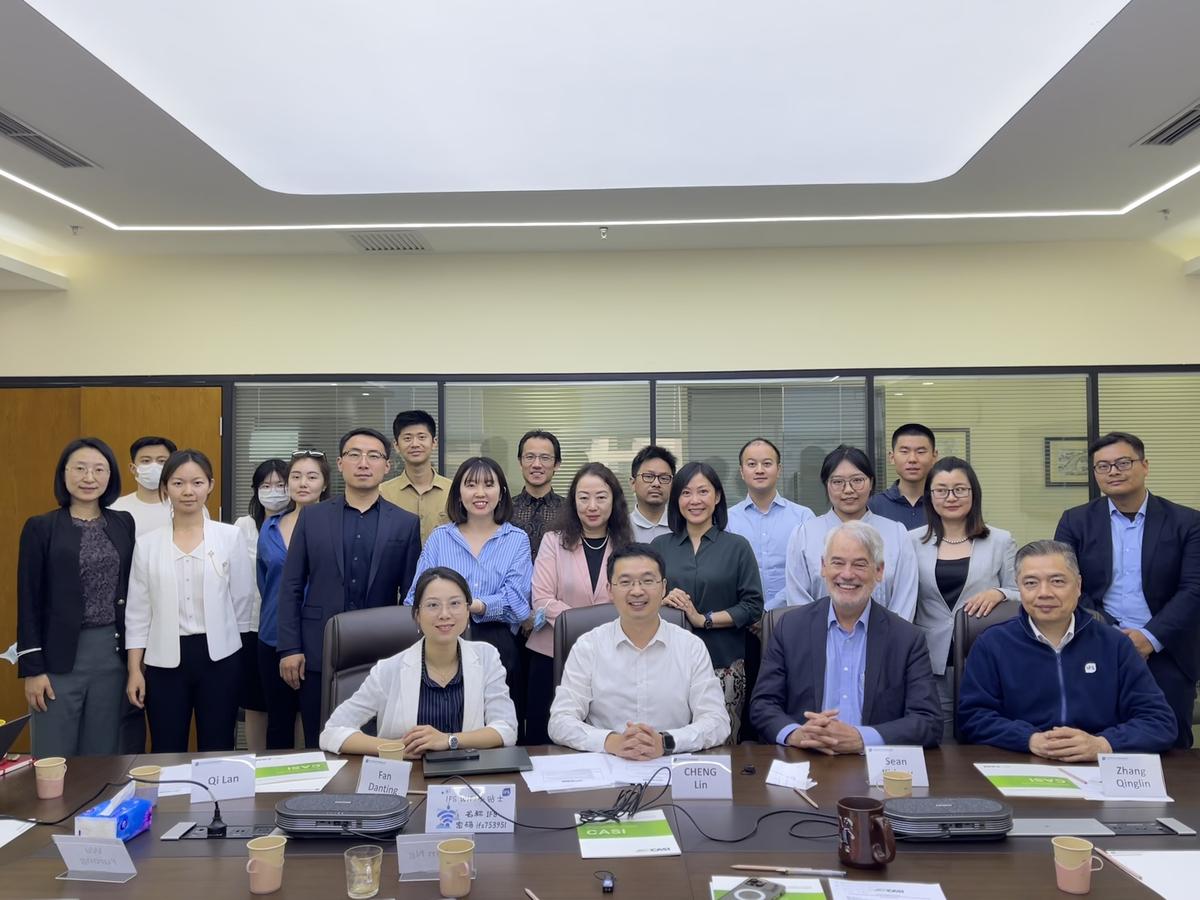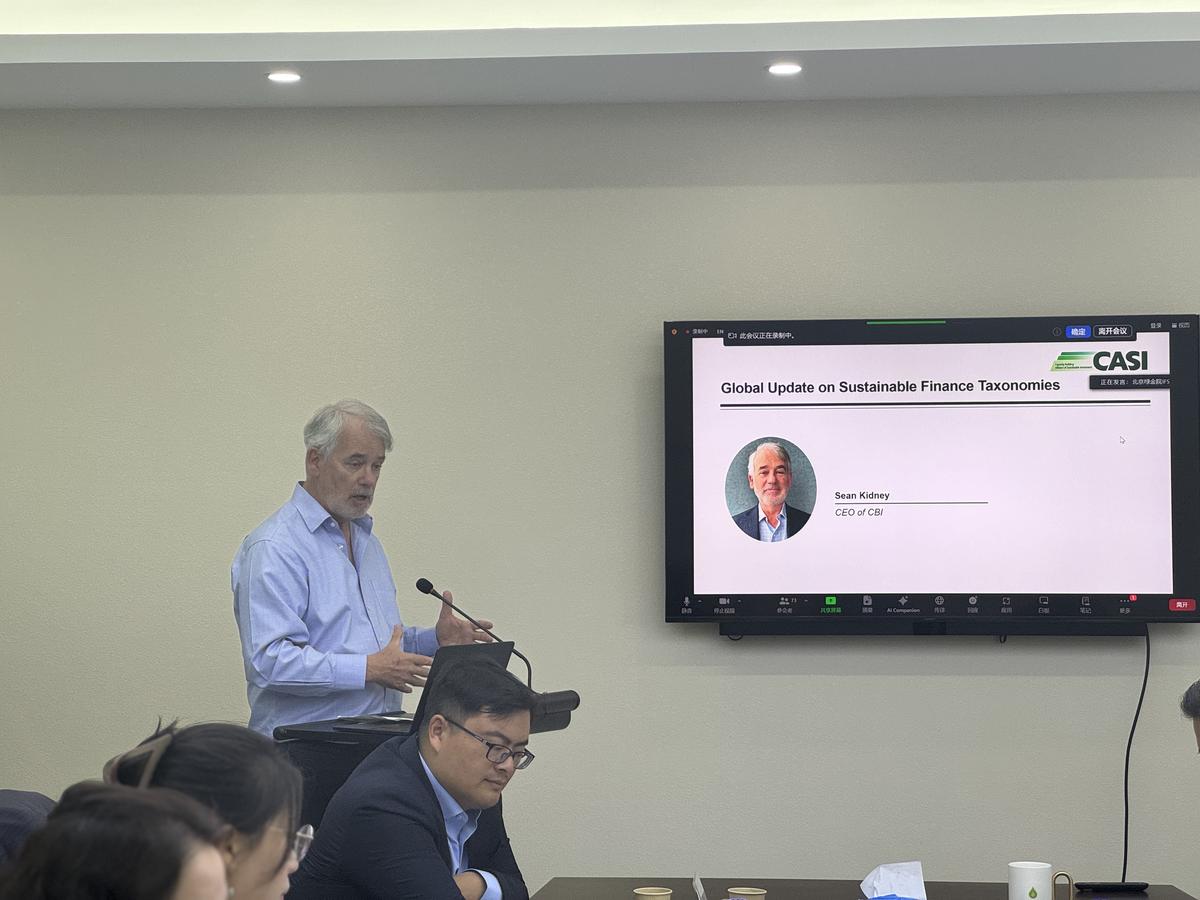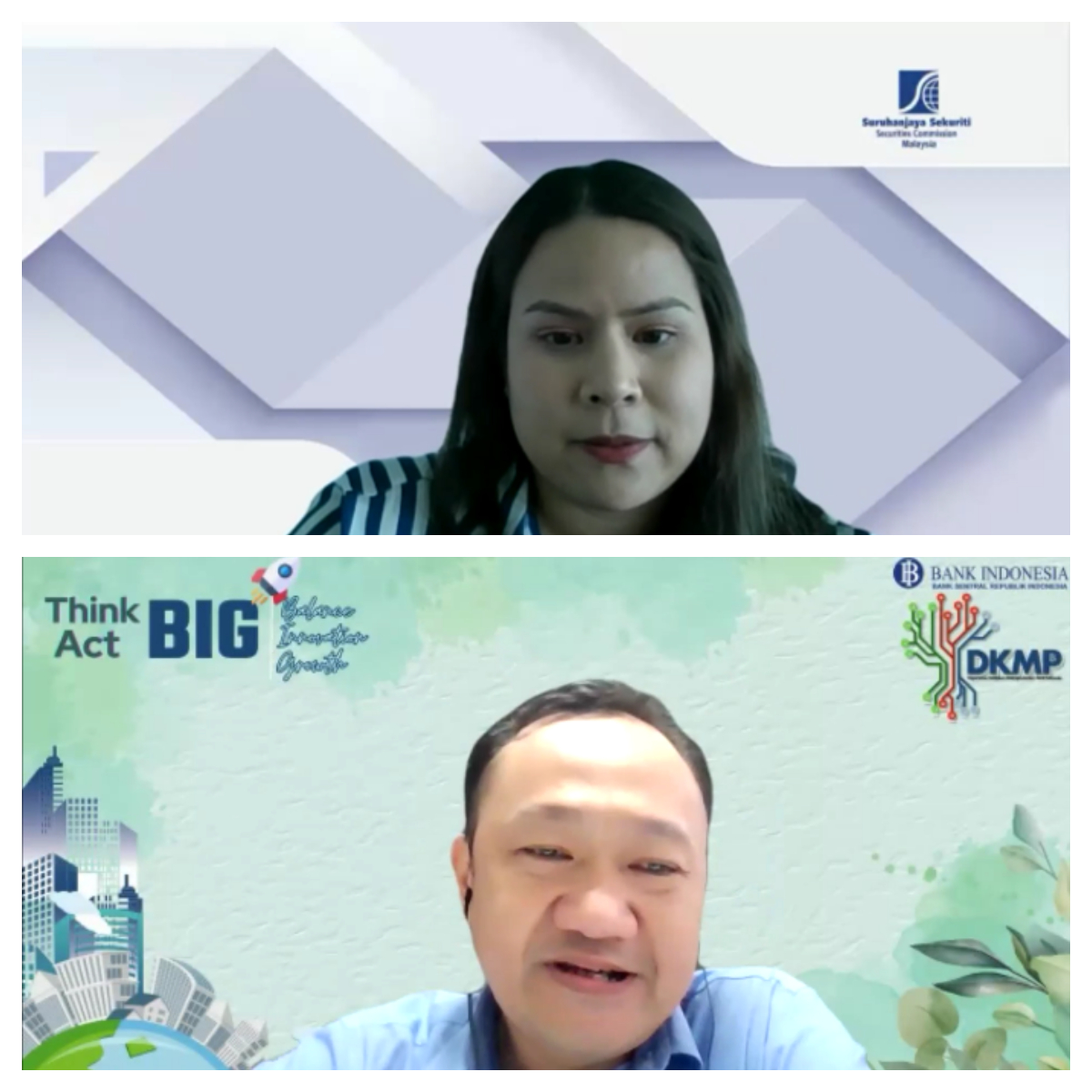
On May 15, 2024, the Capacity-building Alliance of Sustainable Investment (CASI) successfully held its third monthly seminar, in a hybrid way, with the theme of "Sustainable Finance Taxonomies: Fostering Sustainable Finance and Reducing Investment Risks". The event was co-hosted by Climate Bonds Initiative (CBI), a member of CASI. Experts from the Securities Commission of Malaysia, Bank Indonesia, PwC China, ClientEarth, and Societe Generale were invited to share their insights and engage in discussions.
Sean Kidney, CEO of the CBI provided a comprehensive overview of recent progress made in sustainable finance taxonomies across the world, especially in Asia. He highlighted that humanity is confronted with the formidable challenge of completely overhauling our approach to managing the planet, with significant implications for energy systems, architecture, urban planning, and agriculture. Sustainable finance taxonomies are designed to provide clear guidance in tackling these challenges, acting as a blueprint for forging a sustainable future. With the burgeoning green economy, the taxonomy offers investors an investment landscape that promises low risk and high returns. It is essential that leading economies collaborate to spearhead this transformative change.

Nur Nadira Awang Adek, Senior Manager, Sustainability Department, Securities Commission Malaysia and Heru Rahadyan, Assistant Director, Macroprudential Policy Department, Bank Indonesia shared updates on the sustainable finance development in their respective countries and progress on key initiatives such as the implementation of the Sustainable Taxonomy.

Nur Nadira highlighted that the Malaysian Securities Commission has developed a Sustainable and Responsible Investment (SRI) Taxonomy to guide sustainable investment practices in the country and facilitate climate transition financing in capital markets. The taxonomy, which is principles-based and voluntary, aims to identify economic activities that align with environmental, social, and sustainability objectives. The taxonomy requires activities to substantially contribute to at least one objective without causing significant harm to other goals, while meeting minimum safeguard standards. Meanwhile, the Malaysian Securities Commission plans to further refine this taxonomy and develop more detailed guidance aligned with national policies and ASEAN taxonomies.
Heru Rahadyan emphasized the significant impact of climate change on Indonesia. To mitigate these effects, Indonesia has announced its latest NDC commits to a higher GHG reduction target of 31.89% (unconditional) and 43.2% (conditional) below business-as-usual by 2030, which will generate substantial financing demands from the financial sector. In 2023, the Indonesian government enacted a new law mandating Bank Indonesia to strengthen sustainable finance development and authorize its regulation in this field; simultaneously, financial institutions are required to prepare sustainability reports. Other key initiatives include establishing disclosure standards aligned with international financial reporting guidelines, enhancing management of investment emission data, and developing sustainable finance taxonomy. Additionally, banks are encouraged to actively develop green bonds and invest in these bonds, adopt sustainable and responsible investment frameworks for internal management, and support Indonesia's low-carbon transition.
In the panel discussion, speakers shared perspectives on how to promote financial support for sustainable development and avoid green-washing risks. These speakers included NI Qing, Sustainability Markets Leader, Climate and Sustainability Leader, PwC China; Rachel Hemingway, Head of Transition Programmes, CBI; FAN Danting, Climate and Finance Lawyer, Client Earth; and Amy ZHANG, ESG Solutions & Product Strategist for Global Markets in Asia Pacific, Societe Generale. They provided insights from the angles of sustainability disclosure, transition finance development, anti-greenwashing measures, and ESG investment trends.

NI Qing pointed out that the global landscape of sustainability disclosure is complex and rapidly evolving. The ISSB standards, the EU Corporate Sustainability Reporting Directive (CSRD), climate-related disclosure requirements by the U.S. Securities and Exchange Commission (SEC), and the China Security Exchanges guidelines for sustainability reporting by listed companies are collectively driving the global trend towards more comprehensive and standardized sustainability disclosure. Rachel Hemingway emphasized the importance of credible projects for climate transitions, noting that policies and regulations can drive demand and supply in transition finance, with taxonomies serving as crucial tools to guide investors and companies. FAN Danting believes that greenwashing behaviors may occur inadvertently due to a lack of clear guidance, leading to decreased investor confidence in the green finance market. Globally, evolving regulations and taxonomies are being utilized to address these risks. Amy Zhang thinks that despite controversies and greenwashing risks, ESG investment remains a viable strategy, with future ESG investments likely focusing more on transition and impact.


